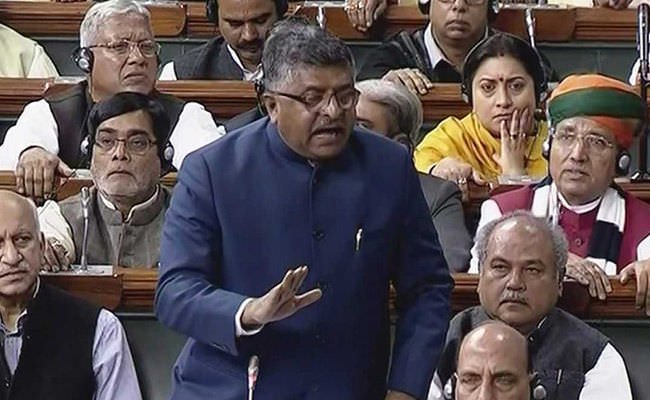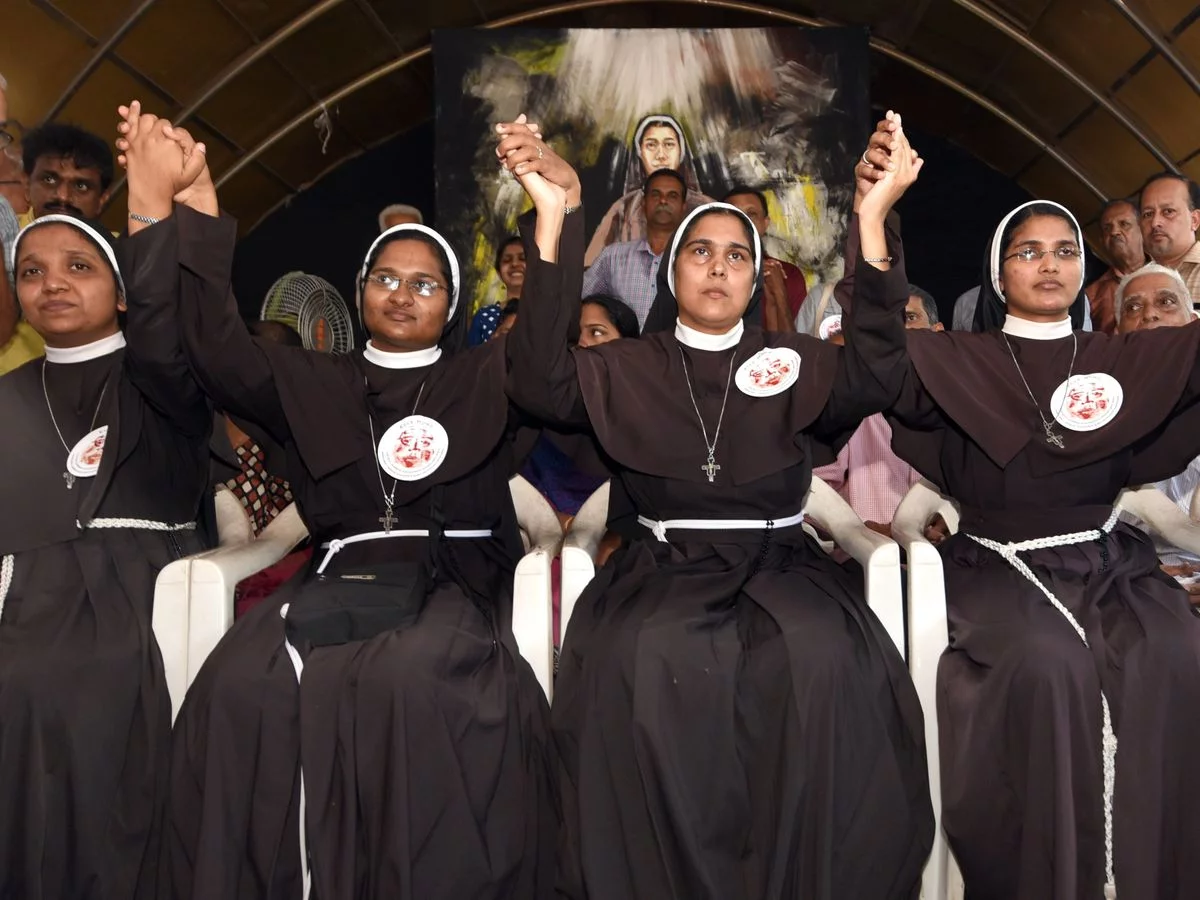The BJP in a hassled attempt to masquerade as a messiah for Muslim woman has brought a legislation to criminalize Talaq-e-Biddat or instant triple talaq. The bill managed to sail through the Lok Sabha despite certain reservations by the opposition parties which can be conveniently ignored because of the majority. The bill is almost mindlessly passed without any constructive deliberations and discussions.
The Law Minister stressed that it is a step towards ensuring gender equality to Muslim women. However, the provisions do not seem to deliver the sense of gender justice. It rather seems to stereotype Muslim men and create criminals out of them to further intensify the atmosphere of Islamophobia that has been systematically cultivated by targeted lynchings and political repressions. Therefore in this backdrop, the bill seems to be a mala-fide attempt to outvoice Muslims in their personal matters to satisfy the Hindutva audience.
The Bill seeks to protect the rights of married Muslim women and to prohibit divorce by pronouncing instant triple talaq by their husbands and to provide for matters connected therewith or incidental thereto. The provisions of the bill however seem too vague and contradictory to fulfill this ambitious objective. It defines talaq as a form of divorce which has the effect of instantaneous and irrevocable dissolution of marriage. Now this is definitely not what talaq means. Talaq-e-Biddat or instant triple talaq is only a kind of talaq.
Talaq means ‘the unilateral repudiation of a marriage by a Muslim husband’. Talaq is of two kinds: Talaq-ul-sunnat (ahsan and hasan) and Talaq-ul-biddat. The former is considered to be the quranically approved form of divorce while the latter is considered to be sinful or bad in theology. In addition to its religious impropriety, instant triple talaq has been held invalid by the Supreme Court in the case of ‘Muslim Women’s Quest for Equality’. Talaq-ul-biddat, as a form of divorce, is now only of academic value lacking any real force. The need was to invalidate the practice of unilateral divorce by men and introduce uniform legal provisions for divorce whether in case of men or women.
The Bill goes on to say that any pronouncement of talaq by a person upon his wife, by words, either spoken or written or in electronic form or in any other manner whatsoever, shall be void and illegal. This is in line with the Supreme Court verdict but after this section we lose the track of what the document is about.
In the very next section, the pronouncement of triple talaq (which is void and has no force) is rendered criminal and punishable with an imprisonment of up to three years and fine. It is punishment for an offence you cannot commit. Also this offence is cognizable and non-bailable. Of course there are provisions for maintenance and custody of children but the divorce has not happened. The Bebaak Collective in its statement has argued that when marriage in Islam is a civil contract, the procedures to be followed on its breakdown should also be of civil nature. Criminalization is not going to subside women’s vulnerability, whether financial or emotional, in the marriage.
Let us revisit the Shayara Bano judgment now. Why Talaq-ul-biddat was rendered unconstitutional by the Supreme Court? As per Justice Kurian, triple talaq needed to be struck down because it is unquranic and what is bad in theology cannot be good in law especially after the law passed in 1937 mandating application of Shariat in the personal affairs of Muslims. Justice Nariman held the impugned practice unconstitutional because it is arbitrary and is not preceded by attempts of reconciliation. He clearly stated in his judgment:
“…it is clear that this form of Talaq is manifestly arbitrary in the sense that the marital tie can be broken capriciously and whimsically by a Muslim man without any attempt at reconciliation so as to save it.”
It can be seen that the Parliament has definitely misread the judgment. There is no mention of reconciliation or arbitration in the judgment. The Parliament could have chosen to legislate on the questions left unanswered in the judgment after discussions and deliberations with the interested parties. The court did not go on to scrutinize the practices of nikah halala and polygamy which are antithetical to Muslim women’s dignity. But would it have looked politically fancy and satiated Hindu patriarchal ego? Maybe no.
The legislator, in their flawed wisdom, rather chose to complicate this further for Muslim women. If the husband goes to jail for an attempted talaq, who is going to give the maintenance. How is this going to further the cause of Muslim women? It will be difficult to gather evidence in these cases and thus a lot of husbands will evade punishments on the basis of benefit of doubt. Further this will also ensure extinction of any possibility of reconciliation or cordiality in the relationship of husband and wife. Even if they do decide to live together later, the tag of criminalization is not easy to shed off in India, whether for the criminal himself or his family.
Meenakshi Lekhi, yesterday in Parliament, claimed that Muslim women have nothing to worry about when they have a brother like Narendra Modi as Prime Minister. This is an insult to the struggle of Muslim women. They strived for their constitutional rights and not political guardians. They do not need any patronization.
Arun Jaitley said that they chose not to consult any Muslim organizations because this is not a matter of religion but constitutional gender justice. It would be relevant here to mention that no women’s organizations were consulted in the drafting of the bill. The women organizations, which were a party in the triple talaq case, have stated that criminalization will not serve the objective, whether of deterrence or empowerment. It is an overkill to introduce criminality in matters of family law. The criminal provisions already exist in the Uniform Penal Code which can be employed in case of domestic violence or financial strain.
While the bill has now been voted in by the Lok Sabha, it is only an optimistic hope that the bill is referred to Select Committee in the Rajya Sabha so that the socio-legal nuances can be studied and it could really resonate with the objective. Creating criminals out of a marital discord is not going to provide relief to Muslim women. Also where is the need for divorce when you can marry again without divorce? It is imperative that the Parliament, instead of overstretching talaq-ul-biddat, move on to repudiate the practices of nikah halala and polygamy. The struggle is for just divorce laws and not piecemeal legislations which are redundant even before their enactment.
Featured Image Credit: NDTV.com




